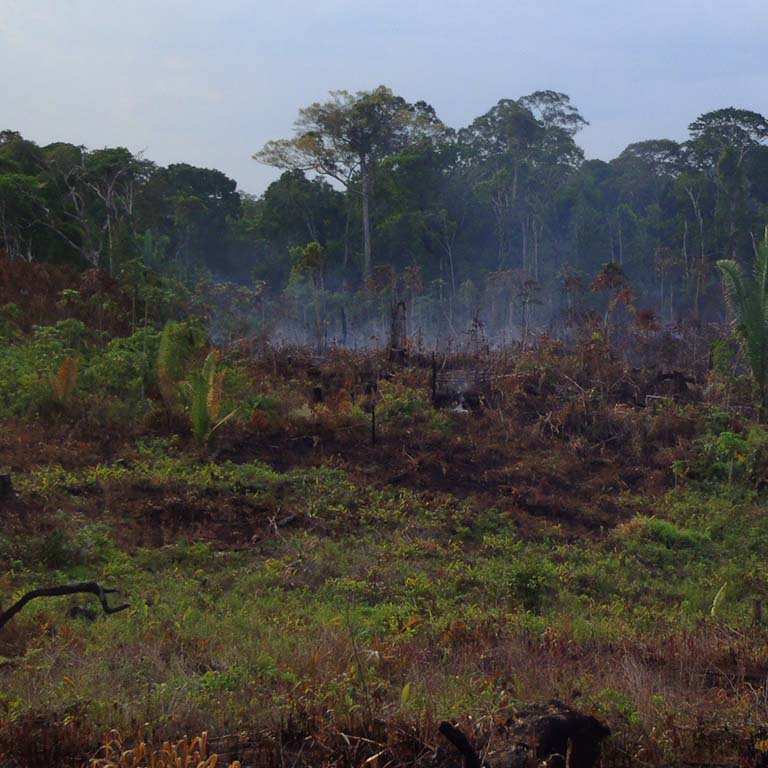The flames consuming the Amazon rainforest this year have alarmed the world, renewing concerns about one of the planet's most biodiverse regions and the release of large amounts of carbon into the atmosphere. But there's another concern that's been largely overlooked—the eroding capacity of Amazonian ecosystems to recover from repeated burning over the years.
In an article in The Conversation, authors Paulo Massoca (CASEL member and Ph.D. candidate at Indiana University) and Catarina Conte Jakovac (postdoctoral researcher at Wageningen University) discuss the findings of more than 20 years of study at Brazil’s Instituto Nacional de Pesquisas da Amazônia—to which they contributed—that have shown that repeated use of fires to manage land results in forests that grow slowly and lose the capacity to restore biodiversity and store carbon.


